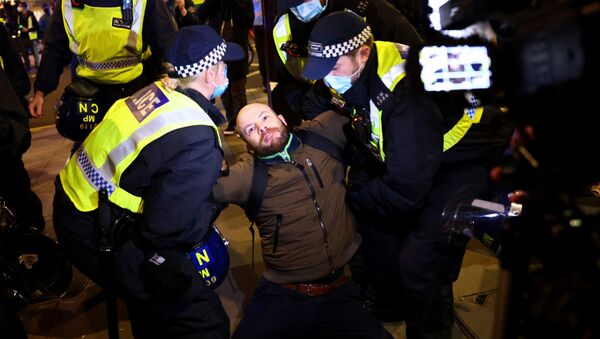It is believed that compliance with measures in place to control the spread of COVID-19 will fall over the winter holidays, increasing fears that a new wave of the virus will snow down on the UK. It is being argued that the whole of Britain will be plunged into a Coronavirus Christmas lockdown and that pubs and bars will remain closed if the public fail to comply with the rules set in place by the Government.
Professor Sheheryar Banuri, from the University of East Angli, has offered his take on how vital it is for the general public to remain compliant during the festive period and why people are finding it so hard to abide by the lockdown rules.
Sputnik: How likely is it that the public will comply with a COVID-19? Christmas?
Banuri: It's difficult because there's these things called social norms. Which basically are rules of behaviour that we pick up from other people and from society, friends, family members, that sort of thing. And Christmas carries its own set of social norms, which has been around for ages. So those are the sorts of norms and rules of behaviour that have been around far before any sort of pandemic, or any of these new rules of behaviour. And so they have the capacity to overturn our new rules of compliance, which is particularly problematic.
Sputnik: Are concerns about broken rules and increasing cases of lack of compliance unfounded? Or should policy makers implement stricter regulations?
Banuri: Policy makers should implement stricter regulations. I think that's pretty clear. We've had evidence now from places, parts of the world that have had similar religious holidays. So either in Muslim countries, and Rosh Hashanah, in Jewish societies, where in the aftermath of these events, compliance has actually gone down quite a bit.
Sputnik: So, do you believe that lockdown should continue until Christmas?
Banuri: I believe that it may not be necessary to have a strict lockdown, as long as there's clarity in what is expected of people and what we need to do to comply with the guidelines.
Sputnik: Why is the public finding it hard to comply with lockdown measures set in place by the government?
Banuri: Typically, there's a number of reasons that have to do with that, most of them have to do with human behaviour. In the absence of pharmaceutical intervention, like a vaccine, what we need to rely on to keep the virus at bay is human behaviour. And a lot of this, they ask for human beings to comply with these guidelines... is high. You have to stay at home, you don't meet family and friends, etc.
And so it does create the need for effort across the board. So human beings have to engage in effort. At the same time, the benefits are uncertain. So people will tell you that you can comply with the guidelines, and you won't get the virus. But the evidence base is not 100%.
So what that means is that there's uncertainty. So some people don't comply with the guidelines, and they won't catch the virus, other people comply, but still might catch the virus.
And so because of that uncertainty, people make their own judgments based on their perceptions of whether or not to comply with the guidelines. Now, what affects this compliance is two things. First, is our perceptions of risk, or our own sort of evaluations of how likely we are to catch the virus.
And second is trust in authorities. So if you have high degrees of trust, you're more likely to comply with the guidelines. And in environments like we have in the UK where there's a distinct lack of trust in the authorities, compliance becomes extremely difficult. So is a lockdown the only answer? I wouldn't say so. I'd say that with clear and credible communication, we can actually circumvent the need for a lockdown, but it requires the government to take lots of steps in order to keep us all safe.



